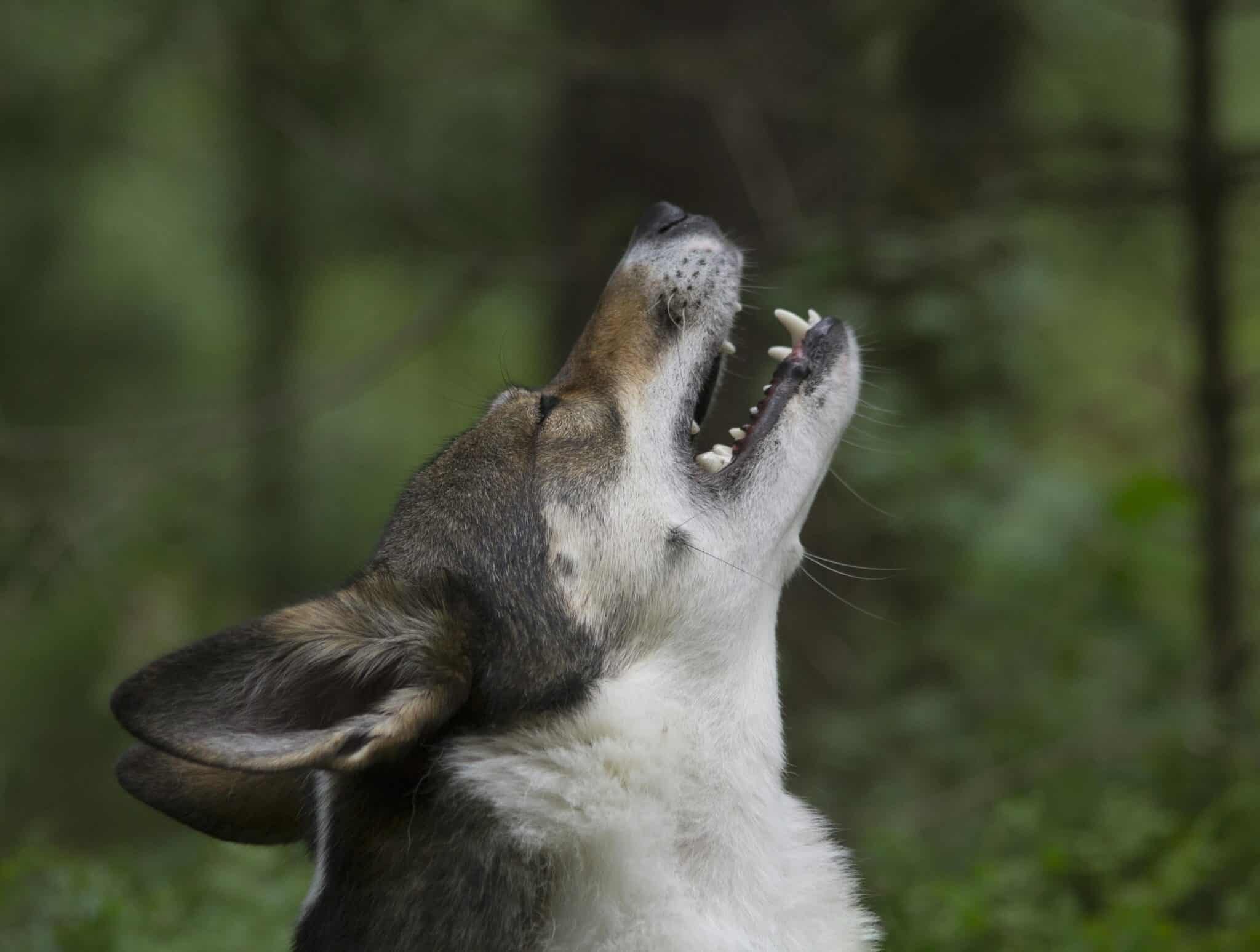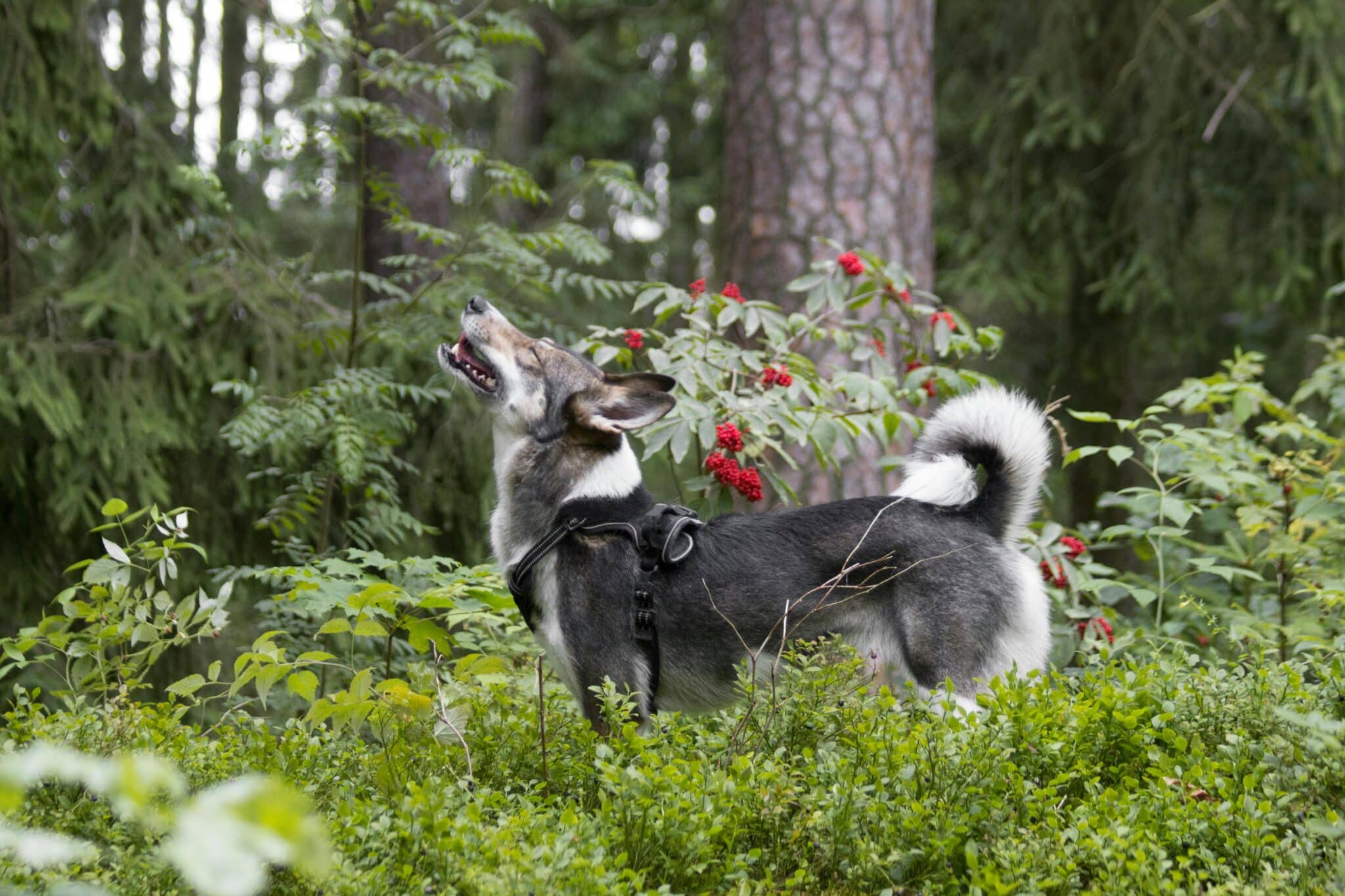
The Ancestral Call

One of the primary reasons dogs may howl at sirens is rooted in their ancestry. Dogs share a genetic lineage with wolves, and wolves use howling as a means of communication. Howling serves various purposes for wolves, such as signaling their location to the pack, coordinating movements, and warning other packs to stay away. When dogs hear sirens, the sound can resemble the high-pitched, sustained calls that wolves use. This similarity may trigger an instinctual response in dogs, leading them to howl as if they’re responding to another ” pack ” member from far away. In a sense, your dog’s howling at a siren is a call back to its wild ancestors.
Sensitivity to High-Frequency Sounds

Dogs’ hearing is far more sensitive than humans, especially when it comes to high-pitched sounds. Sirens, with their sharp, intense frequencies, fall within a range that is particularly stimulating for canine ears. A dog’s hearing can detect sounds from up to four times farther away than humans and can pick up frequencies between 40 Hz and 60,000 Hz. This means that while we hear a siren as a loud noise, dogs experience it as an intense, sometimes overwhelming sound. The instinctual response may be to communicate or “answer back” through howling, reducing their anxiety and reflecting their need to react to stimuli in their environment.
Dogs Using Sirens to Stake Their Claim

Howling may also serve as a territorial response in some dogs. In the wild, wolves and other canines use howling to mark their presence and warn off intruders. When a dog hears a siren, it may interpret the sound as a possible threat encroaching on its territory. By howling, the dog could be asserting its claim and signaling that this area is already “occupied.” This instinctual behavior, ingrained in their wolf ancestors, may prompt dogs to “warn” the sound away, even if they don’t fully understand what the noise actually represents.
Social Dogs, Social Sounds

For social animals like dogs, howling can also be a bonding exercise. In multi-dog households, you might notice that one dog starts howling at a siren, and the others soon join in. This behavior mimics the pack mentality found in wolves, where collective howling reinforces social bonds within the group. Your dog’s howl might be less about the siren and more about connecting with its pack—your family, other dogs, or even you. In this sense, howling can be a comforting action for dogs, helping them feel part of a group and reinforcing their sense of belonging.
Communication and Curiosity

Dogs are naturally curious animals, and when they hear a loud, strange sound like a siren, it may provoke their curiosity. For dogs, howling can be a way of communicating with what they perceive as an unknown entity. By howling back at the siren, they might be attempting to “talk” to the noise and receive a response. It’s a form of exploratory behavior where the dog seeks to establish a connection or at least an acknowledgment of the sound they perceive. For some dogs, this can also be a response to perceived isolation; they’re calling out to see if anyone will answer.
Anxiety and Fear Responses

For some dogs, howling at sirens can indicate anxiety or fear. Dogs that have experienced traumatic events, such as being left alone for extended periods or loud, unsettling noises, may associate sirens with something unpleasant. When they hear a siren, they might start howling to cope with the stress. In these cases, howling serves as a self-soothing behavior, similar to how some dogs might bark when they’re anxious. If your dog howls intensely at sirens and seems agitated, it could be helpful to consult a veterinarian or animal behaviorist to explore ways to ease their anxiety.
Some Dogs Are More Likely to Howl

While all dogs share a wolf ancestry, certain breeds are more predisposed to howling than others. Breeds like Siberian Huskies, Alaskan Malamutes, Beagles, and Bloodhounds tend to howl more frequently, as they’ve retained strong vocal characteristics from their wild ancestors. When these breeds hear a siren, the instinct to howl is much stronger than other breeds. So if you have a Husky that howls at every passing fire truck, it’s likely because their genetic makeup drives them to respond vocally to high-pitched sounds.
Dogs Are Observant Creatures

Dogs are known to learn behaviors from experience, and howling at sirens can be a learned response. If a dog hears sirens frequently and begins howling at them, the action may become reinforced over time. For instance, if howling at a siren results in attention from their owner or even a treat, they’re more likely to repeat the behavior in the future. This learned behavior becomes a habit, and each time a siren blares, the dog knows that howling is likely to get them noticed or rewarded.
Copying the Pack

In households with multiple dogs, you may notice that if one dog starts howling at a siren, the others are quick to join in. This is a behavior deeply ingrained in their social structure, and it mimics pack behavior in the wild, where wolves howl together as a group. Howling together creates unity and strengthens social bonds within the pack. In a multi-dog home, this “group howl” is a form of communal interaction that mirrors the instinctive call-and-response dynamics found in wolf packs.
Some Dogs Enjoy Making Noise

Let’s face it—some dogs love to make noise. For particularly vocal breeds, howling can be an enjoyable activity in itself. Just as some people enjoy singing along to music, some dogs enjoy howling with sirens. This may not have anything to do with instincts, anxiety, or curiosity; instead, the dog may simply be expressing itself in a way that feels natural and satisfying. If your dog is one that seems to love the sound of its own howl, you might find that they’re simply joining in for the fun of it.
When the Howling Becomes Problematic

While occasional howling is natural, excessive or obsessive howling at sirens can indicate an underlying issue. If your dog howls persistently and seems distressed, it may be time to investigate further. Sometimes, providing distractions, offering rewards for quiet behavior, or gradually desensitizing the dog to loud noises can help. In cases of extreme anxiety or OCD-like behavior, consulting a veterinarian or animal behaviorist can be beneficial to explore potential interventions and ensure your dog’s well-being.
The Howl Heard Around the Block

The reasons vary from instinctual responses to social bonding, anxiety, and sometimes just plain enjoyment. For dogs, a siren’s high-pitched sound can spark memories of ancestral calls or serve as a cue to engage with their environment. Understanding these motivations can help us appreciate the complexity of canine behavior and build a deeper connection with our furry friends. Whether it’s a howl of excitement or a call to “check-in,” you’ll know there’s more to it than just noise next time your dog sings along with a passing siren.
Discover more from reviewer4you.com
Subscribe to get the latest posts to your email.





